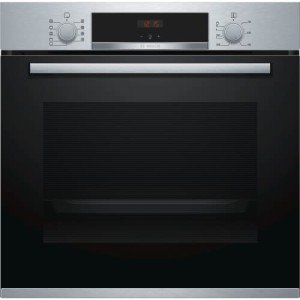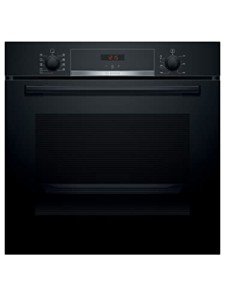What's The Job Market For Kitchen Built In Oven Professionals Like?
페이지 정보

본문

The Ultimate Guide to Kitchen Built-In Ovens: What You Need to Know
When it concerns contemporary cooking areas, the built-in oven is more than simply a home appliance; it is a declaration of style, effectiveness, and functionality. Built-in ovens are designed to integrate perfectly into cabinets, offering a smooth look that enhances the general style of the kitchen. This article checks out the various types, benefits, and considerations of kitchen built-in ovens, and provides insights to assist you make an informed purchasing decision.
Table of Contents
- What is a Built-In Oven?
- Kinds Of Built-In Ovens
- 2.1 Single Ovens
- 2.2 Double Ovens
- 2.3 Steam Ovens
- 2.4 Wall Ovens
- Advantages of Built-In Ovens
- Key Features to Look For
- Installation Considerations
- Regularly Asked Questions
- Conclusion
1. What is a Built-In Oven?
A built-in builtin oven is an fitted oven created to be set up within kitchen cabinets instead of as a freestanding unit. This style enables higher visual flexibility while maximizing offered kitchen space. Built-in ovens can be found in numerous sizes and setups, accommodating diverse culinary needs and kitchen styles.
2. Kinds Of Built-In Ovens
Understanding the various types of built-in ovens can help consumers pick the right one for their kitchen setups and cooking designs.
2.1 Single Ovens
Single ovens are compact and designed to fit within standard cabinet widths. These ovens usually provide sufficient space for daily cooking needs, such as baking or roasting. They come in various electric or gas designs and are typically easy to use with simple controls.
2.2 Double Ovens
For individuals who regularly host large events or enjoy cooking multi-course meals, double ovens can be a lifesaver. These units include 2 separate oven compartments and offer increased cooking capacity, permitting for simultaneous baking or roasting at various temperatures.
2.3 Steam Ovens
Steam ovens make use of steam to prepare food, which helps retain moisture and nutrients. These ovens are increasingly popular among health-conscious people and premium cooks. Steam ovens can be built-in together with standard ovens for Kitchen Built In Oven a flexible kitchen built in oven setup.
2.4 Wall Ovens
Wall ovens are designed to be installed within a wall rather than under counter tops. They use practical gain access to and can be integrated ovens and hobs with other wall-mounted kitchen appliances. Wall ovens may be offered as single or double units.
3. Advantages of Built-In Ovens
Going with a built-in oven features numerous benefits:
- Space Efficiency: Built-in ovens can be tucked into kitchen cabinetry, maximizing important kitchen area.
- Visual Appeal: They supply a cleaner, more modern look than basic freestanding ovens.
- Variety of Designs: Built-in ovens are offered in several finishes, including stainless steel, black, and white, permitting integration with numerous kitchen designs.
- Enhanced Functionality: Many built-in ovens come equipped with sophisticated features such as self-cleaning modes, touch screens, and convection technology.
4. Secret Features to Look For
When selecting a built-in oven, think about the following features to improve cooking functionality:
- Temperature Range: A wider temperature level range enables higher versatility in cooking different dishes.
- Self-Cleaning Options: Look for models that use self-cleaning abilities to save time and kitchen Built In oven effort on maintenance.
- Convection Cooking: Convection ovens circulate air to cook food uniformly and rapidly.
- Wi-Fi Connectivity: Some contemporary built-in ovens included Wi-Fi capability, allowing users to manage settings or preheat the oven remotely.
- Security Features: Check for features like automatic shut-off, kid locks, and cooling systems to ensure optimal safety.
5. Setup Considerations
Before buying a built-in oven, particular installation elements require to be resolved:
- Size and Dimensions: Ensure the picked oven fits the designated space. Measure the height, width, and depth of the desired installation area.
- Ventilation: Gas ovens require sufficient ventilation to ensure security. Consult an expert if required.
- Electrical Requirements: Check the electrical specs of the selected system to make sure compatibility with existing outlets.
- Professional Installation: If you're not experienced in appliance setup, it may be a good idea to look for expert help to ensure proper fitting and compliance with local codes.
6. Regularly Asked Questions
Q1: How do built-in ovens vary from freestanding ovens?A: Built-in ovens are set up in kitchen cabinetry for a seamless look, while freestanding ovens stand alone and do not require built-in installation.
Q2: Can you set up a built-in oven yourself?A: While some individuals with experience may select to install an oven themselves, it is typically advised to work with a professional to ensure electric or gas connections are securely set up. Q3: Are built-in ovens energy-efficient? A: Many built-in ovens feature energy-saving innovation and are frequently more efficient compared to older models. Always inspect energy ratings before acquiring. Q4: Do built-in ovens need unique maintenance?A: Regular maintenance consists of keeping
the interior clean and looking for any wear and tear. Self-cleaning
designs can simplify this task substantially. Q5: What is the average life expectancy of a built-in oven?A: The average life-span of a built-in oven is generally in between 10 to 15 years, depending upon usage and maintenance practices. 7. Conclusion Investing in a built-in oven can improve both the performance and visual appeals of your kitchen. With various types and functions available, customers
can select models that
best fit their cooking design and style preferences. Whether a seasoned chef or a home cook, the advantages of going with a built-in oven are clear. By considering the information laid out in this guide, individuals can make informed choices that will lead to years of cooking pleasure. Extra Resources For additional details on kitchen appliances, think about having a look at the list below resources: Consumer Reports: Product evaluations and buying guides. Energy Star: Energy-efficient home appliance suggestions. Home Improvement Stores: Local specialists can offer additional insights and recommendations. Embarking on a kitchen renovation or upgrade can be
an exciting journey, and selecting the ideal built-in oven plays a crucial functionin developing afunctional and elegant cooking environment.
- 이전글11 "Faux Pas" That Actually Are Okay To Create With Your Subaru Key Programming 25.05.20
- 다음글Nine Things That Your Parent Teach You About Duel Fuel Range Cookers 25.05.20
댓글목록
등록된 댓글이 없습니다.
